The role of mass media in preventing violence against women and girls in Moldova
Date:
The media plays a key role in shaping attitudes and values in society, and it can also help promote positive social norms by addressing the causes of gender-based violence (GBV). Media outlets can participate in risk mitigation by providing essential information to victims, survivors and those who would like to support them. To discuss these issues and more, UN Women and UNICEF Moldova partnered with the Association of Independent Press (API) to host an event with journalists, news agency representatives, civil society organisations, lecturers and journalism students.
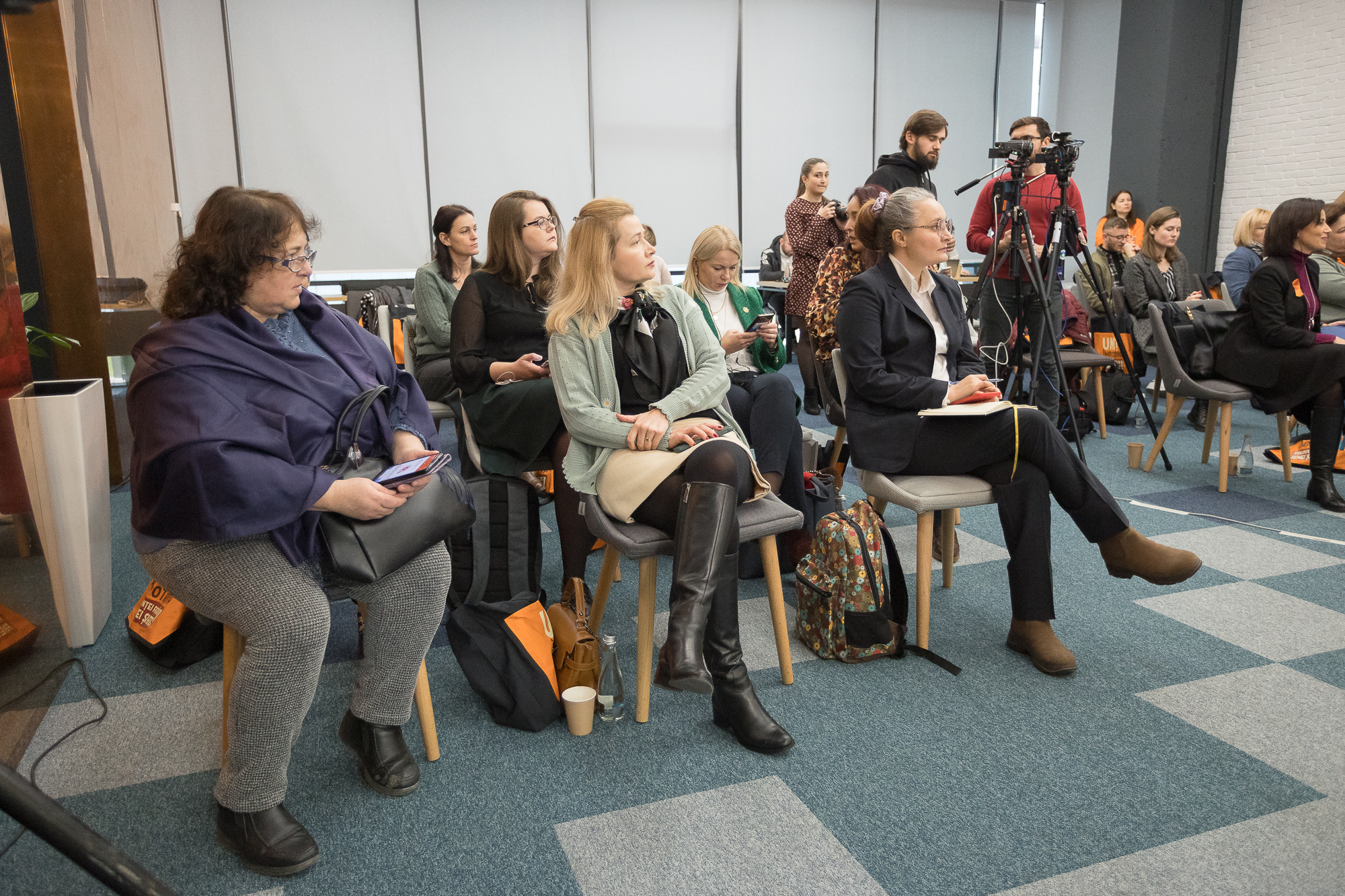
Photo credit: Stela Donțu/ UN Women
The event was organised around two important research reports: "Mapping common trends in media reporting of cases of violence against girls and women," a UN Women and UNICEF report that provides an overview of global trends in media reporting on GBV and a “Media-based approach to gender-based violence and violence against children, guide for journalists,” a report developed by API for UN Women Moldova’s EVA project.
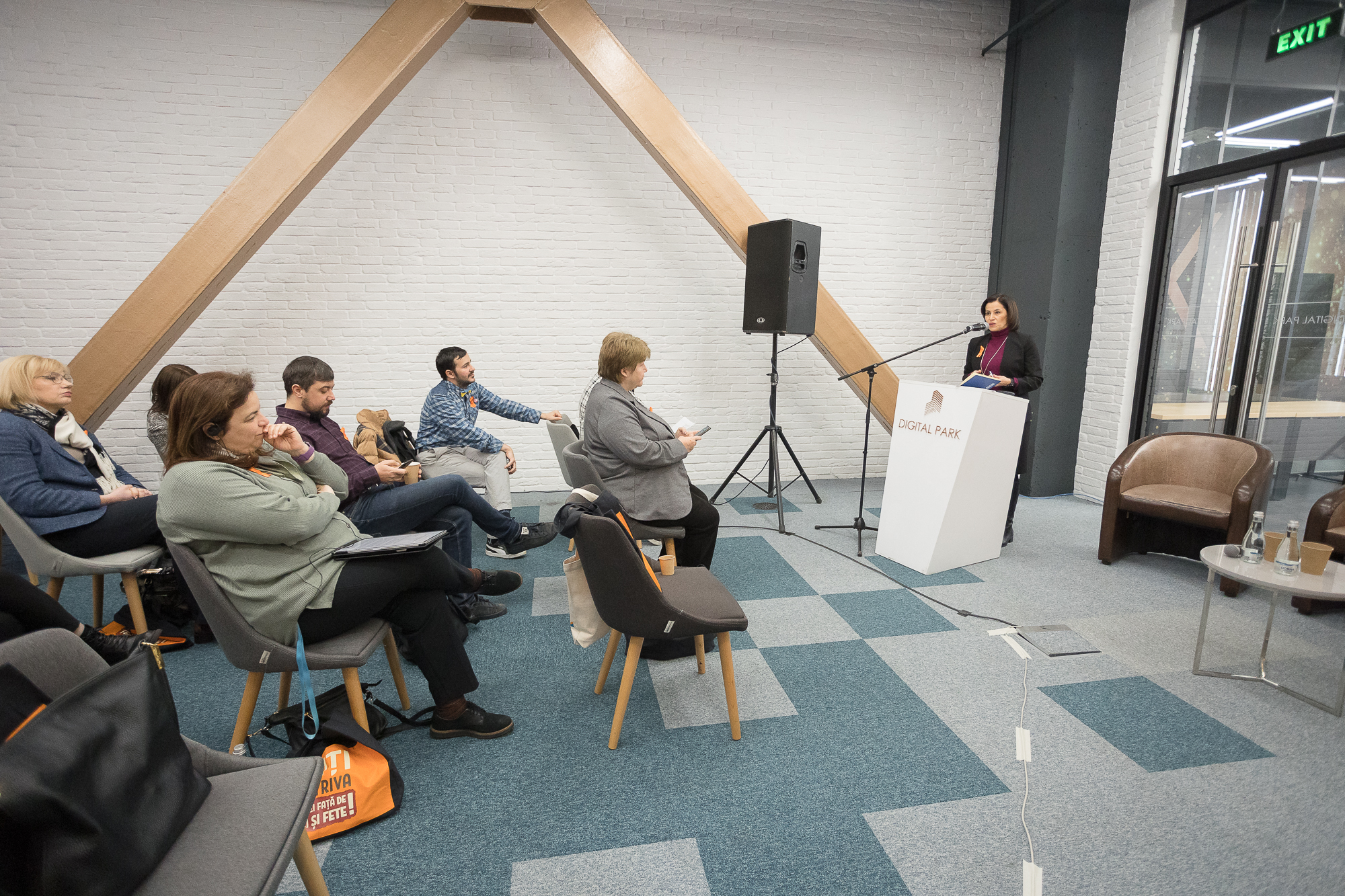
Photo credit: Stela Donțu/ UN Women Moldova
Attending the event, Dominika Stojanoska, country representative UN Women Moldova, stressed that violence against women and children still remains a main barrier to achieving gender equality and sustainable development. She also discussed UN Women and UNICEF’s joint effort to analyse media reporting on violence during the pandemic. “As a result of this analysis, a number of recommendations regarding gender and age-sensitive reporting of cases of violence have been launched,” she said. “We want to have a joint dialogue on how to implement these recommendations in the Republic of Moldova but also to urge everyone to join the 16 Days Campaign and spread messages against GBV".
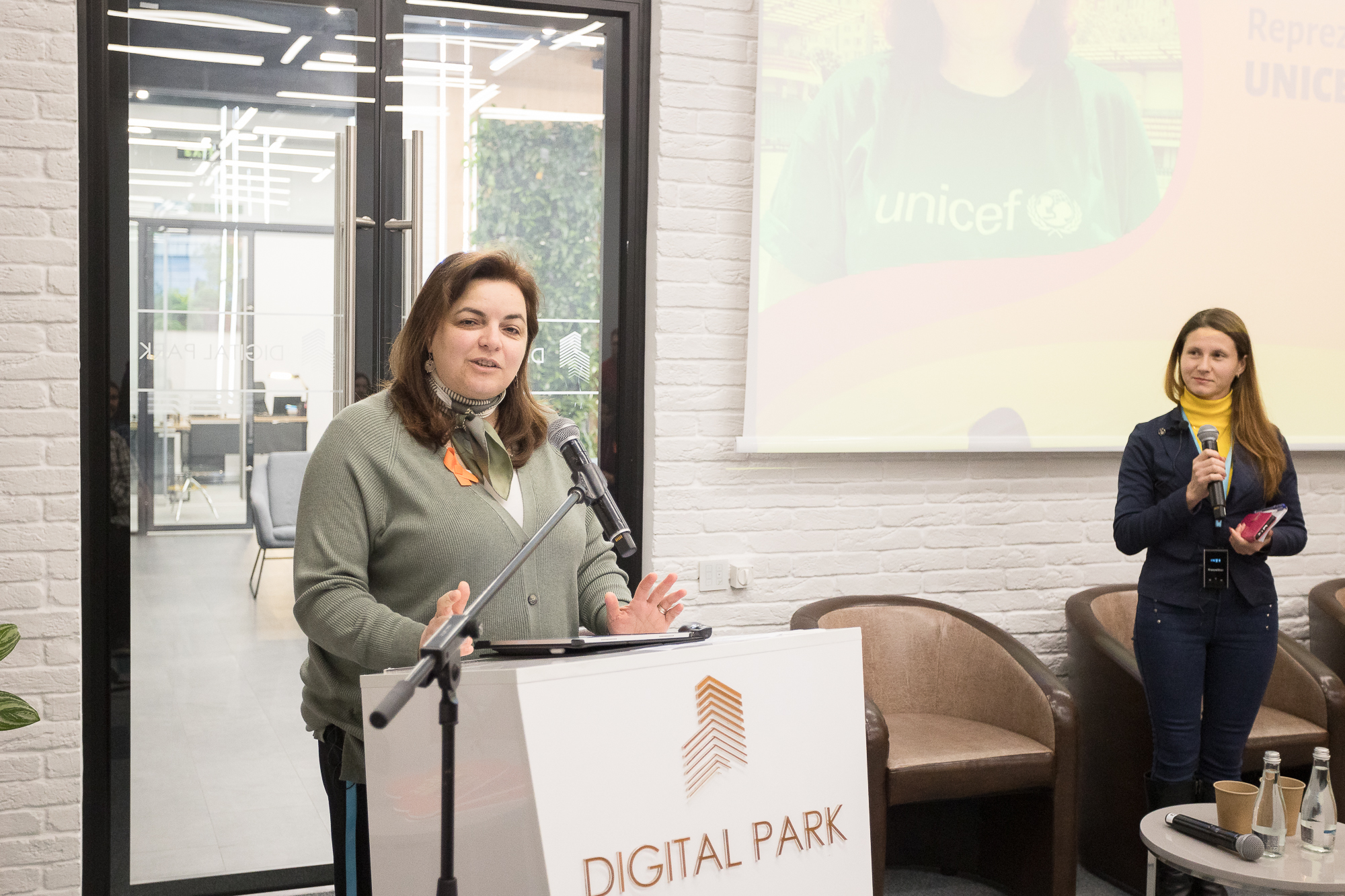
Photo credit: Stela Donțu/ UN Women Moldova
Maha Damaj, country representative UNICEF Moldova, mentioned the fact that one in three women and girls worldwide is subjected to violence for the simple reason that they are women or girls. “We use statistical data to show how serious the problem is in society, but I want to mention that one woman or a girl is already too many,” she said. “Today, thanks to technology access, the media has even more power, which implies even more responsibility. Gender-based violence is determined by stereotypes and social norms and the media’s appropriate coverage of these topics will contribute towards eliminating this phenomenon in society”.
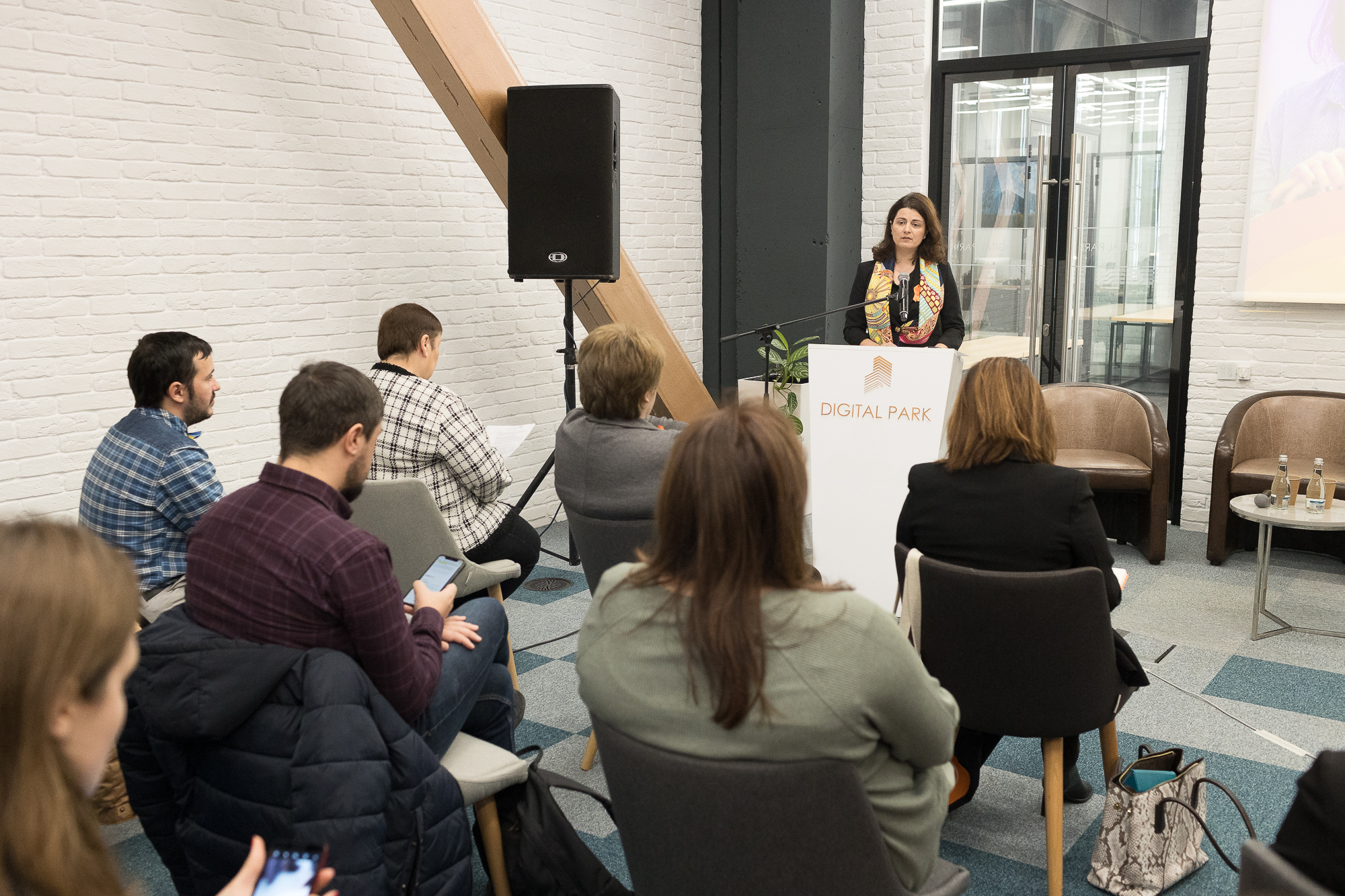
Photo credit: Stela Donțu/ UN Women Moldova
Cristina Bobârcă, the Head of API’s Training and Organisational Development Department, said that API has organised several trainings aimed at helping local and national journalists develop skills on topics related to gender mainstreaming, including GBV. "As a result of this work and these activities, several editorial teams in the Republic of Moldova have begun to take a gender-sensitive lens, and this has been appreciated,” she said. “There is still a lot of work to be done, and we will continue to be part of initiatives in this field, including with the support of our partners, UN Women and UNICEF Moldova".
The event also featured a discussion panel with journalists on the media’s role in combating violence against women and girls and accelerating gender equality. One of the dialogue’s participants, Alina Radu, the Director and Co-Founder of Ziarul de Gardă, spoke about challenges currently facing the media. "Before asking ourselves how the subject of violence is reflected in the press, we have to ask ourselves: What kind of press do we have? And how do we, not only as journalists but also as representatives of civil society and ordinary citizens, contribute to the press that we have today?” she asked, adding that the spread of digital media has led to a phenomenon called “newsrooms without reporters”. “There are newsrooms where only copying and pasting [stories] is done, but responsible journalists realise that they have to do on-the-ground reporting and allow sources to speak,” she said. “So I call on you and challenge you to look at who has a newsroom and who is just doing copying and pasting. Stop following, stop liking such media. Stop supporting newsrooms that don’t share your attitude”.”
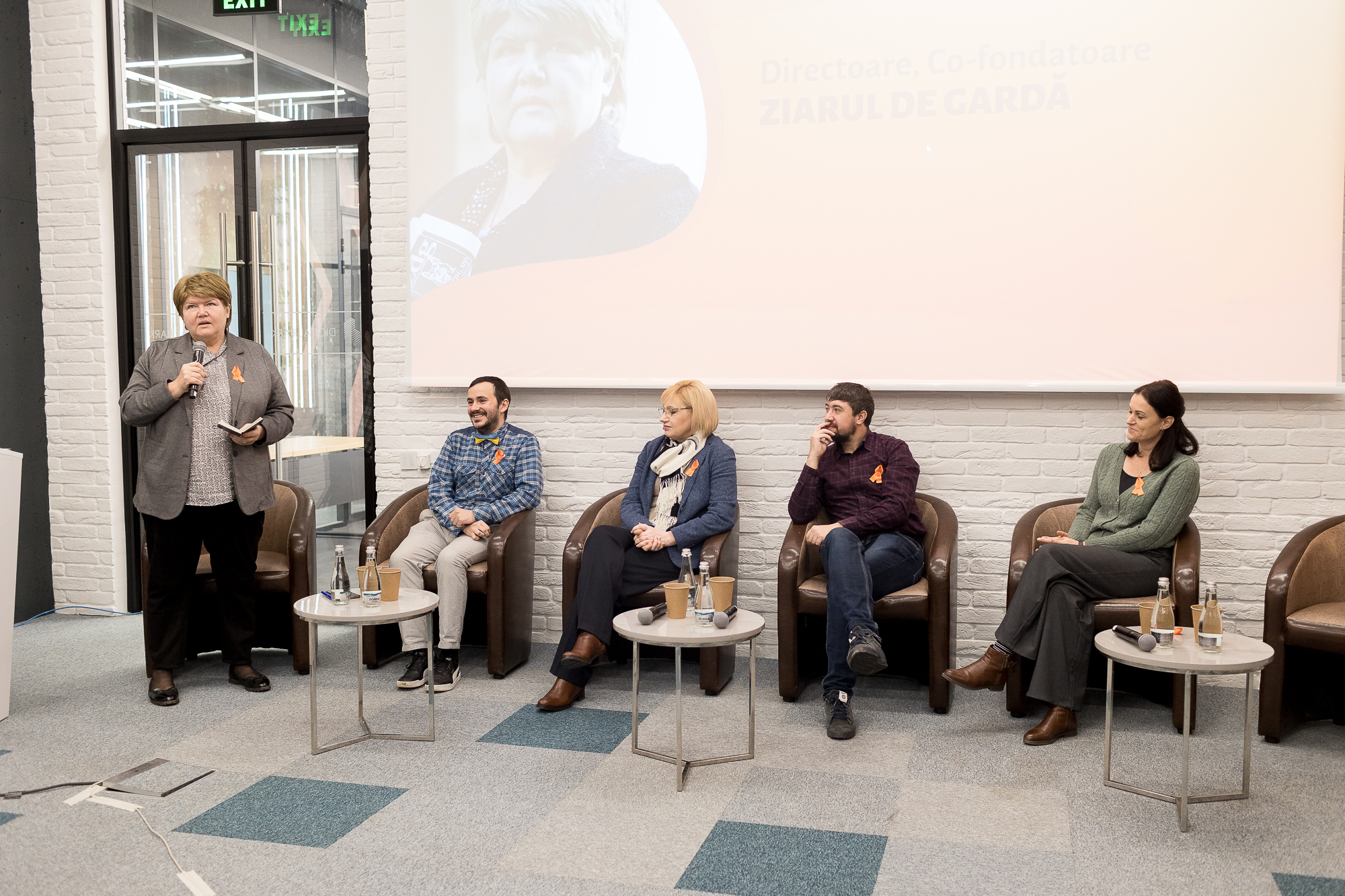
Photo credit: Stela Donțu/ UN Women
Sergiu Niculiță, the Programme Director of TV8, spoke from the perspective of a journalist who reports on violence-related topics. "You have to talk to the victim in a way that does not make things worse,” he said. “Not all reporters have the necessary experience”. He said that another problem is that the emphasis is not always placed correctly in stories, causing the aggressor to be presented as the victim. “A lot of times reporters do their job very well but still find themselves with trials, threats and the presumption of innocence," he added.
Also contributing to this discussion was Ludmila Barbă, the Editor-in-Chief of the socio-economic, diaspora and ethnic broadcasting office of Teleradio Moldova, who said that in the Republic of Moldova, as well as many other post-Soviet states, more obligations are placed on the shoulders of the press than necessary. She discussed media coverage of a recent case in which a young woman took her own life after experiencing domestic violence. “The interdisciplinary teams knew about this case, but they did not take action. The Republic of Moldova ratified the Istanbul Convention in 2021, with very few votes. In this context, who is responsible? Journalists, policymakers, interdisciplinary teams?” she said. “I am sorry, but again it is the responsibility of media institutions to change our perception of this problem – to make the aggressor feel guilty, not the victim".
Alexandru Lebedev, the founder of Diez.md, discussed his team’s strategy. "We think it's better to write less content a year and only write [stories] and get involved where you know you can really help,” he said, adding that their website targets a young audience and strives to focus on preventing violence. “For us it is very important to talk about consent, about how to be vocal and where to reach out when you need help,” he said. “We hope that through this work we will create change over time. I think we are already seeing many changes, and it is important to cover the progress already achieved”.

Photo credit: Stela Donțu/ UN Women
Natalia Junghietu, Administrator of the newspaper Experul Ungheni, added: "In the last two years, we have been involved in covering cases of violence. We strive to organise various information campaigns with the involvement of young people, because they are the ones who want to create change and talk openly about this phenomenon".
Valentina Ursu, Director of the radio station Vocea Basarabiei and moderator of the event, said that domestic violence still remains a taboo subject in our society and that it happens across socio-economic groups – in educated families and families that lack of education as well. “The media informs us incessantly about various cases of violence, but it seems that the media and advertising often miss the mission of being social educators,” she said. “Victims of violence mean fresh news topics and a new propagation of self-inflicting evil that brings in audiences. It upsets me that in this rush for building audiences and pageviews, we forget to emphasise the real values that make society beautiful, not make it even uglier".

Photo credit: Stela Donțu/ UN Women
Media outlets, as well as the content they deliver, face unrelenting challenges. But they also present incredible opportunities to achieve gender equality and eliminate violence against women and girls.